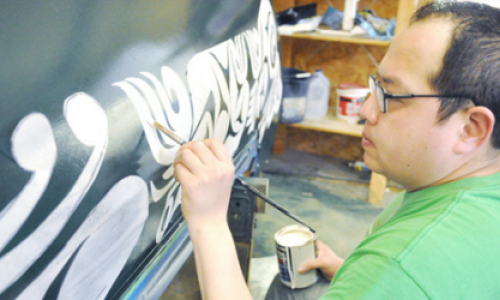
Here you are ‘studenting’ to become an excellent future employee. You are researching, learning, memorizing facts, working on reports, taking exams, learning technical skills, analyzing information and everything else that makes you amazing.
Did you realize that you are also learning skills that are less obvious? These skills are that of high interest to your future employers.
We are talking about Soft Skills. Skills like communication, time management, leadership, or teamwork.
Soft skills are defined by oxford dictionary as ‘personal attributes that enable someone to interact effectively and harmoniously with other people’. Some soft skills you are naturally born with, some have been taught to you by your parents, teachers or friends and other you’ve had to learn on your way. The most important thing about soft skills is that they are transferable to everything you do. Some soft skills that most students need to be successful are: team work skills, time management skills, communication skills, and being driven.
Here are 6 Soft Skills that Employers are looking for:
-
Time Management Skills – Are you able to work smart? Most work environments require projects, tasks, and services to be completed almost simultaneously. In order to be successful in this type of environment you need to organize/prioritize your tasks, and plan your precious hours. An employee that does this well is able to be more effective during their regular work hours.
-
Communication Skills/Interpersonal Skills – This is the ability to communicate with people, build rapport, and build relationships. It is invaluable to an employer if you are able to quickly build relationships with clients, internal departments, and other colleagues.
-
Teamwork Skills – Communicating with people is a little different than working with people. In most industries you will have to be part of a team at some point. Teamwork skills include the ability to complete tasks with others effectively. These teamwork skills also encompass skills such as listening, negotiating, idea sharing etc. Being a student is a great time to practice your ability to be a cohesive and contributing member of a team.
-
Strong Work Ethic – This does not necessarily mean working 60 hours a week. It means working smart, being engaged in your work and industry, showing initiative in your role, and working hard when you are at work.
-
Adaptability – Change is a constant way of being in the fast-paced world of careers. Most competitive organizations have a culture of fluidity that allows them to adjust to customer demands, technological innovations, or other market changes and stay ahead of the competition. Employees who are able to adapt with the organization are attractive to employers because they will propel the change forward.
-
EQ (Emotional Intelligence Quotient) – There is increasing evidence that emotional intelligence is a major factor for success in careers. It includes awareness of emotions in oneself and others, empathy, and listening skills. To learn more about EQ click here.
To understand how good your soft skills are requires the ability for self-analysis and accepting critique. This can be tough and frightening – it can be tough to hear that you are bad at teamwork.
Taking the time to really evaluate yourself and having the drive to grow in your weak areas is one of the best things you can do for your future career as well as your personal life.
Things you can do right now:
-
Think of times at school, work or volunteer positions where you had to use or develop any of these soft skills. Keep a diary of clear examples when you displayed one of these skills.
For example, is there a time that you were especially adaptable? Describe the situation, your reaction, your thought process, and the results.
These gold nuggets will be great to refer to in the future while writing your resume, cover letter, or preparing for interview questions.
-
The first step in improving a soft skill is admitting that you need improvement. This requires a process of personal reflection, asking family and friends, and observing others.
One easy way to start improving is becoming aware of those around you – did you witness a good interpersonal interaction? What was different about it? How would you have done it?
Another thing you can do is seek out material online or in your local bookstore about developing a specific soft skill and practice, practice, practice.













